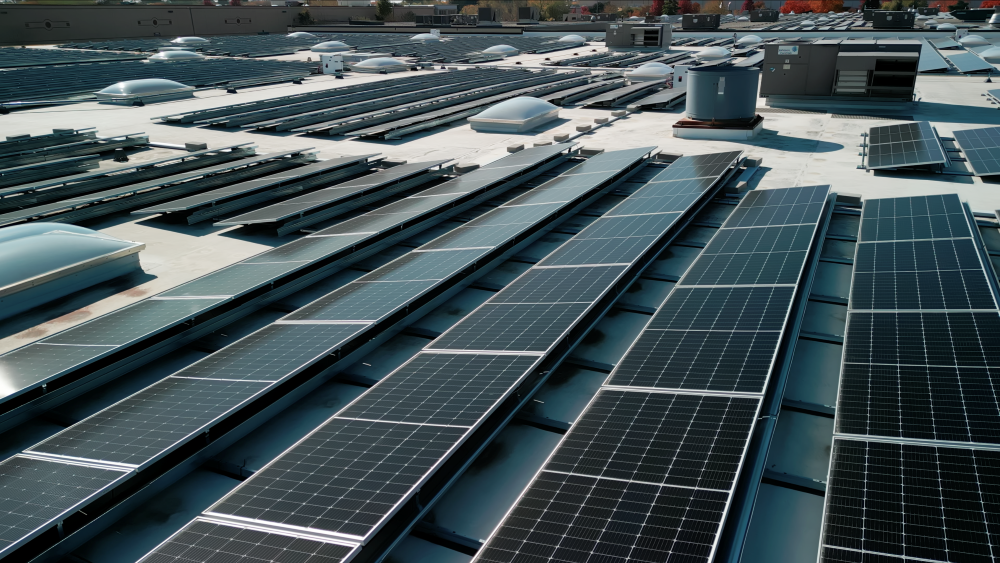Energy Transition Shorts: Flow-based market coupling - the big shift in Nordic energy

Key takeaways from this episode:
In this video Tom Williams and Coos Battjes explore zonal pricing in practice. It focuses on the Nord Pool market (Sweden and Norway), where Downing has many renewable energy assets.
As both Sweden and Norway are split into zones: generation-heavy north with low prices and demand-heavy south with high prices. Residents in the south, especially in Norway, have expressed frustration over paying more.
The primary solution for this – building more transmission capacity – takes time. In the interim, Nord Pool introduced flow-based market coupling, optimising how capacity is allocated between day-ahead and intraday markets. While helpful, it created some anomalies and tensions between countries.
Sweden’s response has been to hold back more reserve margins, preventing extreme pricing swings. This suggests a period of adjustment and learning, with gradual improvements expected as systems stabilise. The pair highlight that zonal pricing works in theory, but practical and political realities make it complex to implement smoothly.
Energy and Infrastructure at Downing
Downing’s dedicated team of renewable energy and infrastructure specialists provide investors with access to renewable energy, grid infrastructure and energy storage opportunities across the UK and Northern Europe. From developing and constructing large-scale renewable energy projects to in-house asset management, we have integrated teams providing end-to-end capabilities.
What is Flow-Based Market Coupling? How is it working in the Nordics since inception? Join Tom Williams, Partner and Head of Energy & Infrastructure, and Coos Battjes, Energy Markets Specialist, as they explore this topic.
Key takeaways from this episode:
In this video Tom Williams and Coos Battjes explore zonal pricing in practice. It focuses on the Nord Pool market (Sweden and Norway), where Downing has many renewable energy assets.
As both Sweden and Norway are split into zones: generation-heavy north with low prices and demand-heavy south with high prices. Residents in the south, especially in Norway, have expressed frustration over paying more.
The primary solution for this – building more transmission capacity – takes time. In the interim, Nord Pool introduced flow-based market coupling, optimising how capacity is allocated between day-ahead and intraday markets. While helpful, it created some anomalies and tensions between countries.
Sweden’s response has been to hold back more reserve margins, preventing extreme pricing swings. This suggests a period of adjustment and learning, with gradual improvements expected as systems stabilise. The pair highlight that zonal pricing works in theory, but practical and political realities make it complex to implement smoothly.
Energy and Infrastructure at Downing
Downing’s dedicated team of renewable energy and infrastructure specialists provide investors with access to renewable energy, grid infrastructure and energy storage opportunities across the UK and Northern Europe. From developing and constructing large-scale renewable energy projects to in-house asset management, we have integrated teams providing end-to-end capabilities.
What is Flow-Based Market Coupling? How is it working in the Nordics since inception? Join Tom Williams, Partner and Head of Energy & Infrastructure, and Coos Battjes, Energy Markets Specialist, as they explore this topic.
Key takeaways from this episode:
In this video Tom Williams and Coos Battjes explore zonal pricing in practice. It focuses on the Nord Pool market (Sweden and Norway), where Downing has many renewable energy assets.
As both Sweden and Norway are split into zones: generation-heavy north with low prices and demand-heavy south with high prices. Residents in the south, especially in Norway, have expressed frustration over paying more.
The primary solution for this – building more transmission capacity – takes time. In the interim, Nord Pool introduced flow-based market coupling, optimising how capacity is allocated between day-ahead and intraday markets. While helpful, it created some anomalies and tensions between countries.
Sweden’s response has been to hold back more reserve margins, preventing extreme pricing swings. This suggests a period of adjustment and learning, with gradual improvements expected as systems stabilise. The pair highlight that zonal pricing works in theory, but practical and political realities make it complex to implement smoothly.
Energy and Infrastructure at Downing
Downing’s dedicated team of renewable energy and infrastructure specialists provide investors with access to renewable energy, grid infrastructure and energy storage opportunities across the UK and Northern Europe. From developing and constructing large-scale renewable energy projects to in-house asset management, we have integrated teams providing end-to-end capabilities.
Key takeaways from this episode:
In this video Tom Williams and Coos Battjes explore zonal pricing in practice. It focuses on the Nord Pool market (Sweden and Norway), where Downing has many renewable energy assets.
As both Sweden and Norway are split into zones: generation-heavy north with low prices and demand-heavy south with high prices. Residents in the south, especially in Norway, have expressed frustration over paying more.
The primary solution for this – building more transmission capacity – takes time. In the interim, Nord Pool introduced flow-based market coupling, optimising how capacity is allocated between day-ahead and intraday markets. While helpful, it created some anomalies and tensions between countries.
Sweden’s response has been to hold back more reserve margins, preventing extreme pricing swings. This suggests a period of adjustment and learning, with gradual improvements expected as systems stabilise. The pair highlight that zonal pricing works in theory, but practical and political realities make it complex to implement smoothly.
Energy and Infrastructure at Downing
Downing’s dedicated team of renewable energy and infrastructure specialists provide investors with access to renewable energy, grid infrastructure and energy storage opportunities across the UK and Northern Europe. From developing and constructing large-scale renewable energy projects to in-house asset management, we have integrated teams providing end-to-end capabilities.

Please fill out the form to download the full report
Downing LLP does not provide advice or make personal recommendations and investors are strongly urged to seek independent advice before investing. Investments offered on this website carry a higher risk than many other types of investment and prospective investors should be aware that capital is at risk and the value of their investment may go down as well as up. Any investment should only be made on the basis of the relevant product literature and your attention is drawn to the risk, fees and taxation factors contained therein. Tax treatment depends on individual circumstances of each investor and may be subject to change in the future. Past performance is not a reliable indicator of future performance. Downing LLP is authorised and regulated by the Financial Conduct Authority (Firm Reference Number 545025). Registered in England No. OC341575. Registered Office: Downing, 10 Lower Thames Street, London, EC3R 6AF.










